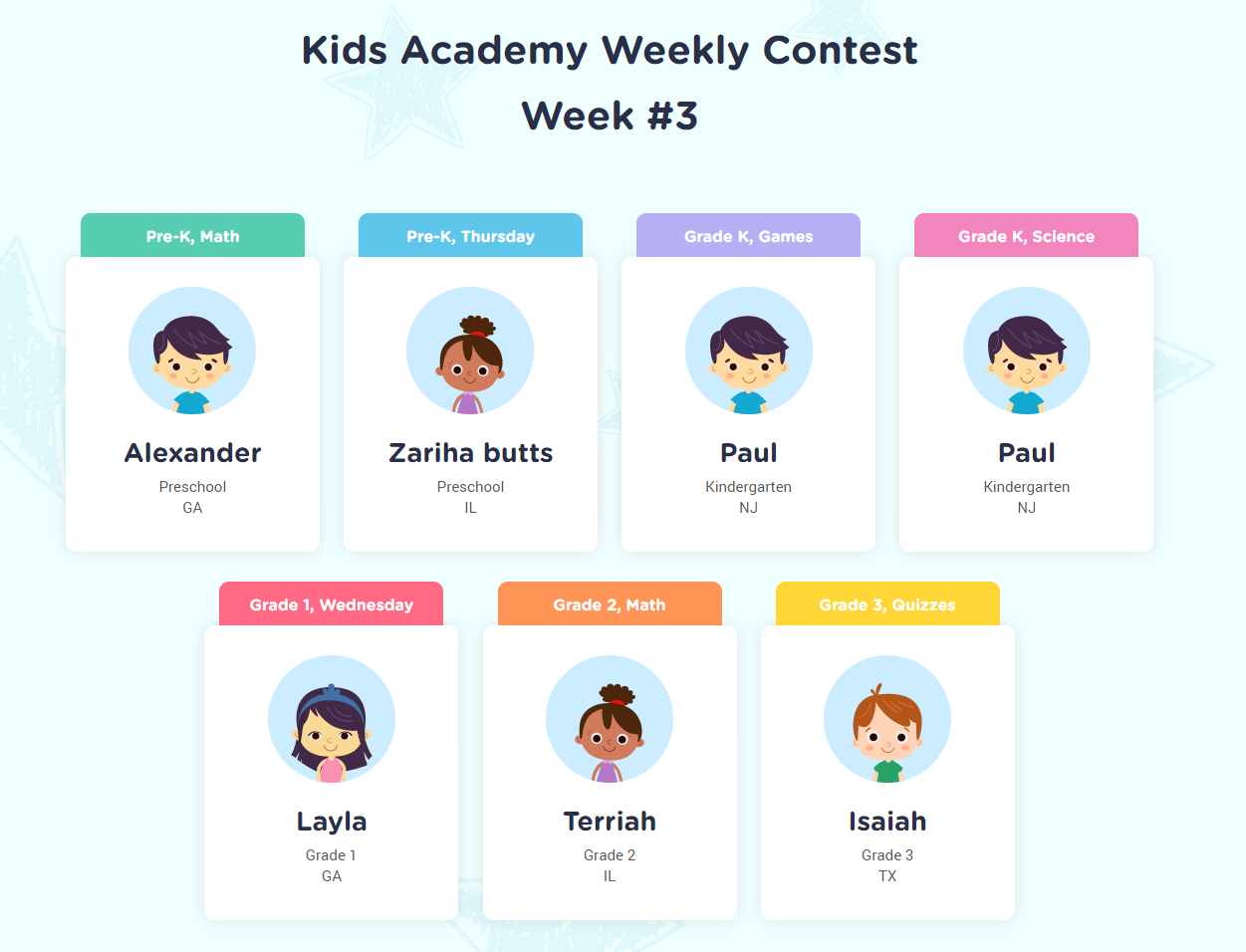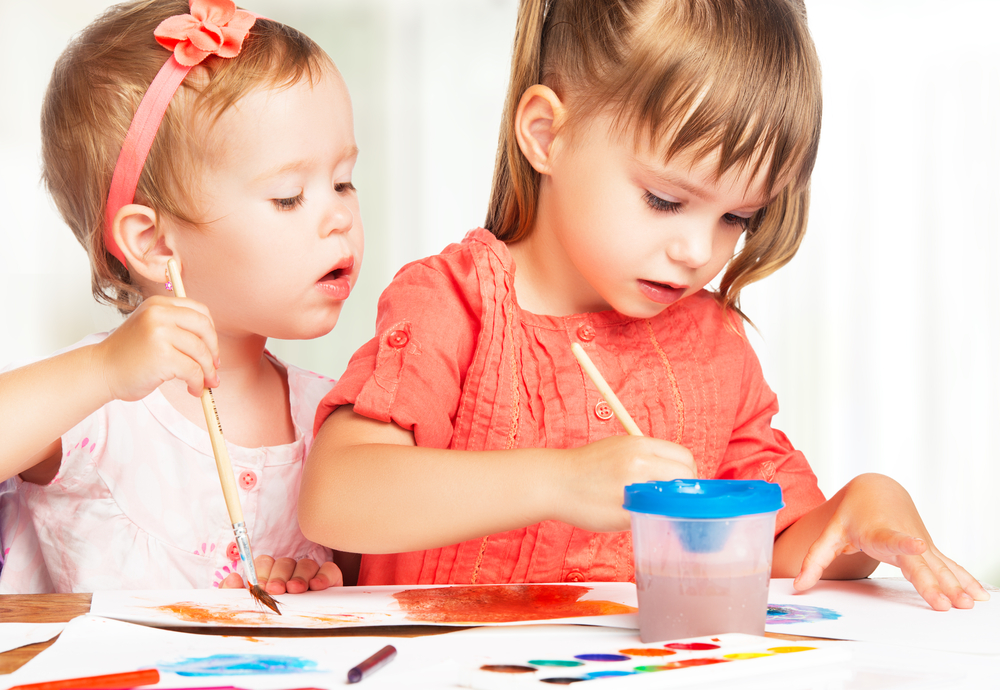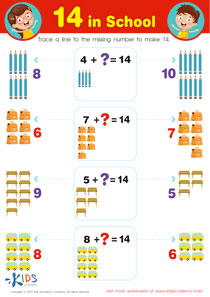K-ESS3-3 K.Relationships in Ecosystems worksheets With Answers for Kindergarten
5 filtered results
Difficulty Level
Grade
Age
-
From - To
Subject
Activity
Standards
Favorites
With answer key
Interactive
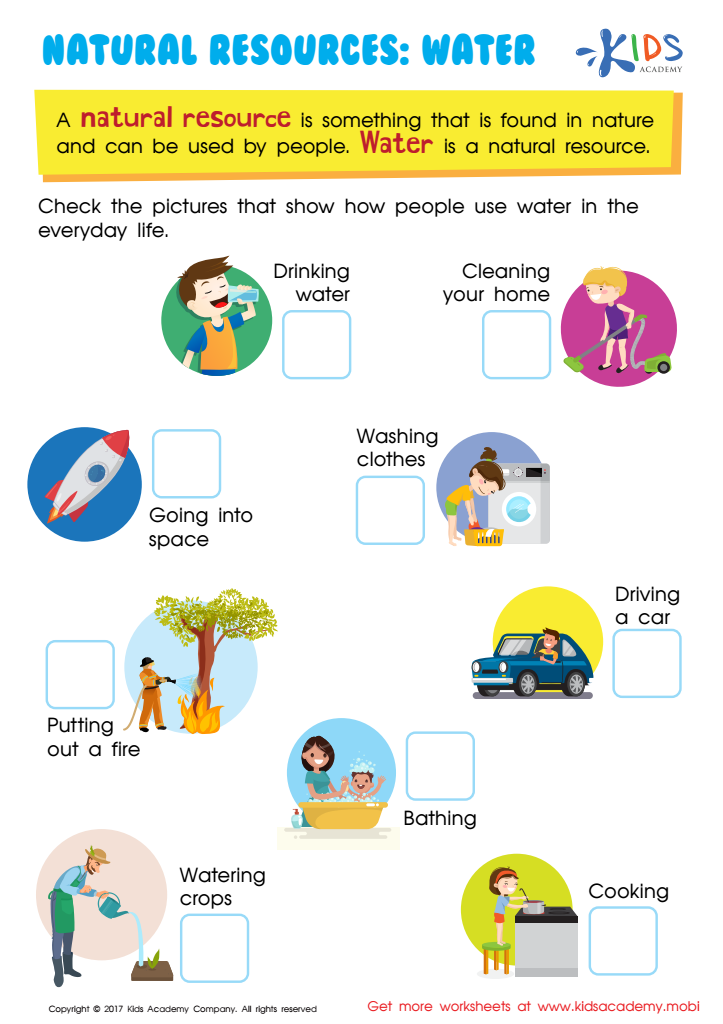

Natural Resources: Water Worksheet
With our natural resources water worksheet, your child will explore the significance of this precious resource.
Unlock your child’s understanding of water’s importance with our natural resources water worksheet. They’ll learn the many ways we use water in our day-to-day lives, and grasp the necessity of this vital natural resource.
Natural Resources: Water Worksheet
Worksheet
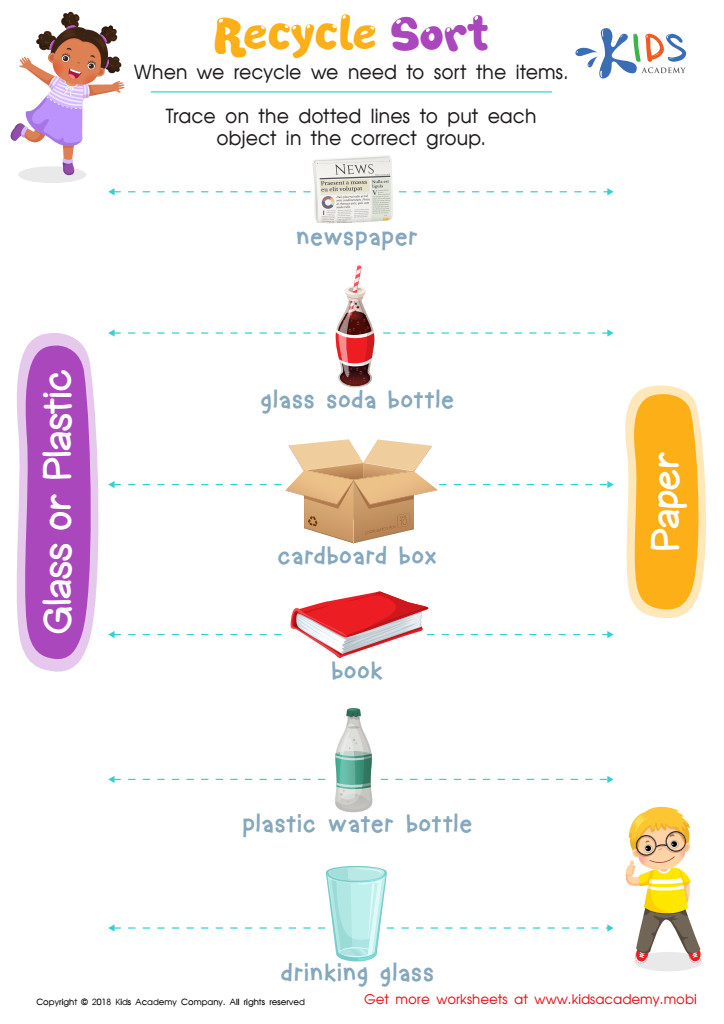

Recycle Sort Worksheet
Help your children become eco-warriors while they develop critical thinking and fine motor skills with this free downloadable worksheet! Engaging pictures and matching words, plus fun and bright colors, will have kids analyzing and sorting recyclables into paper or glass/plastic groups using traceable lines.
Recycle Sort Worksheet
Worksheet
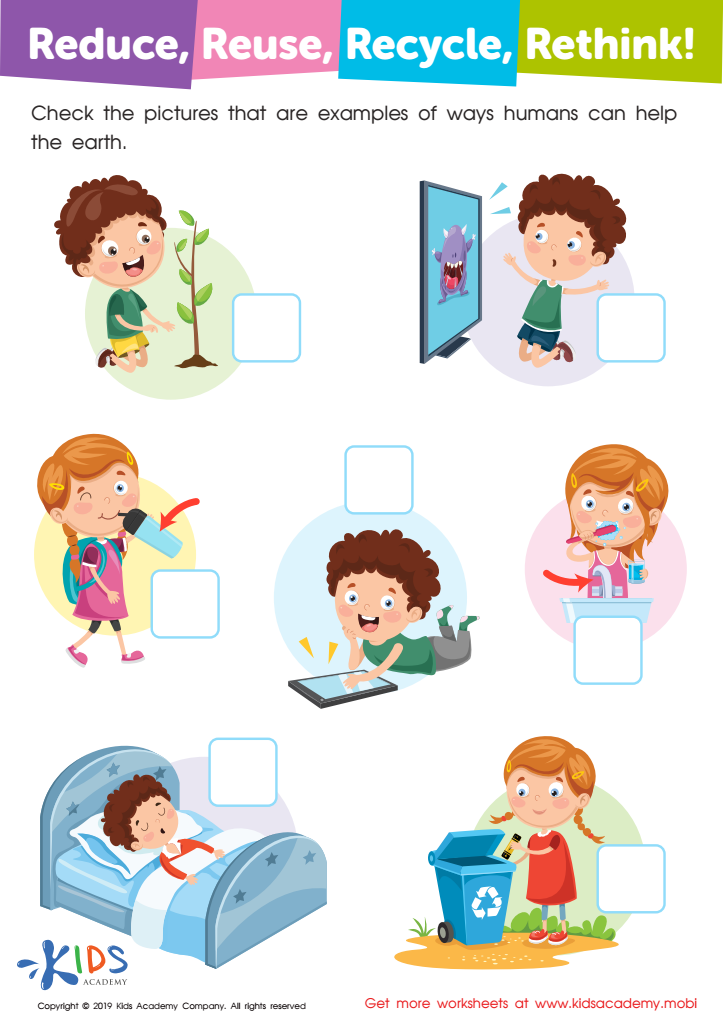

Reduce, Reuse, Recycle, Rethink Worksheet
Recycling is a great way to reduce waste and help our planet — instead of throwing away a can of soda, recycle it! Look at the pictures in the worksheet — what are the kids doing? They're learning about ways to help the environment. Check the pictures for examples of how to help the earth.
Reduce, Reuse, Recycle, Rethink Worksheet
Worksheet
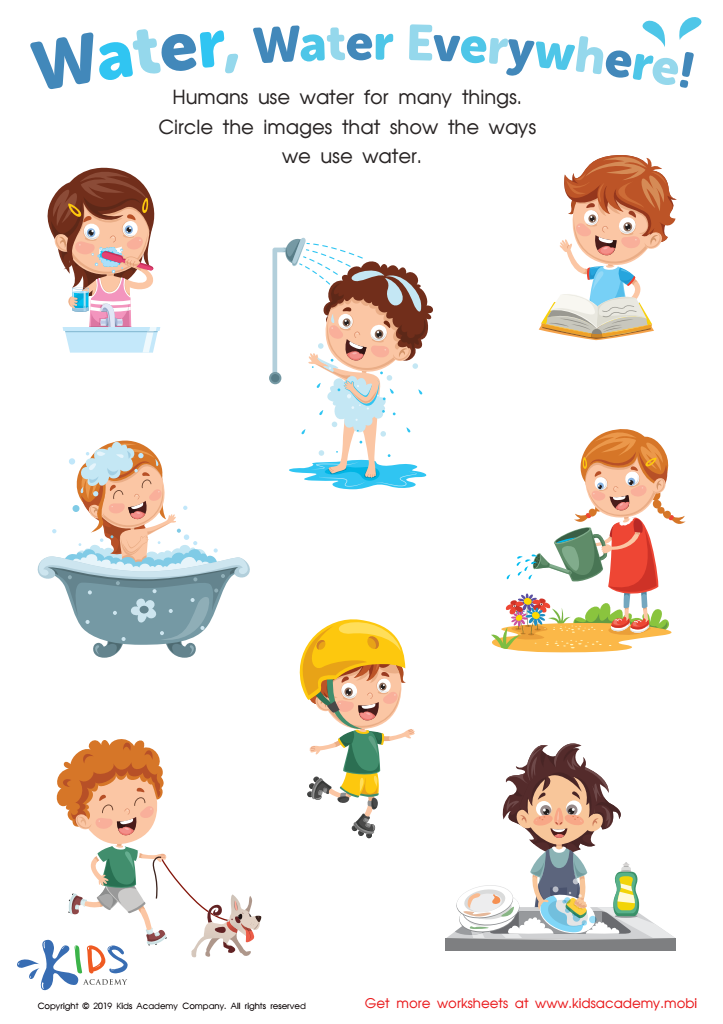

Water, Water Everywhere! Worksheet
Ask your kids how we use water daily. Point out how vital it is to the environment, as many living things couldn't exist without it. Show them this worksheet with kids doing different things that involve water. Ask them to identify what each one is doing, then help them circle the images which show the ways we use the water.
Water, Water Everywhere! Worksheet
Worksheet
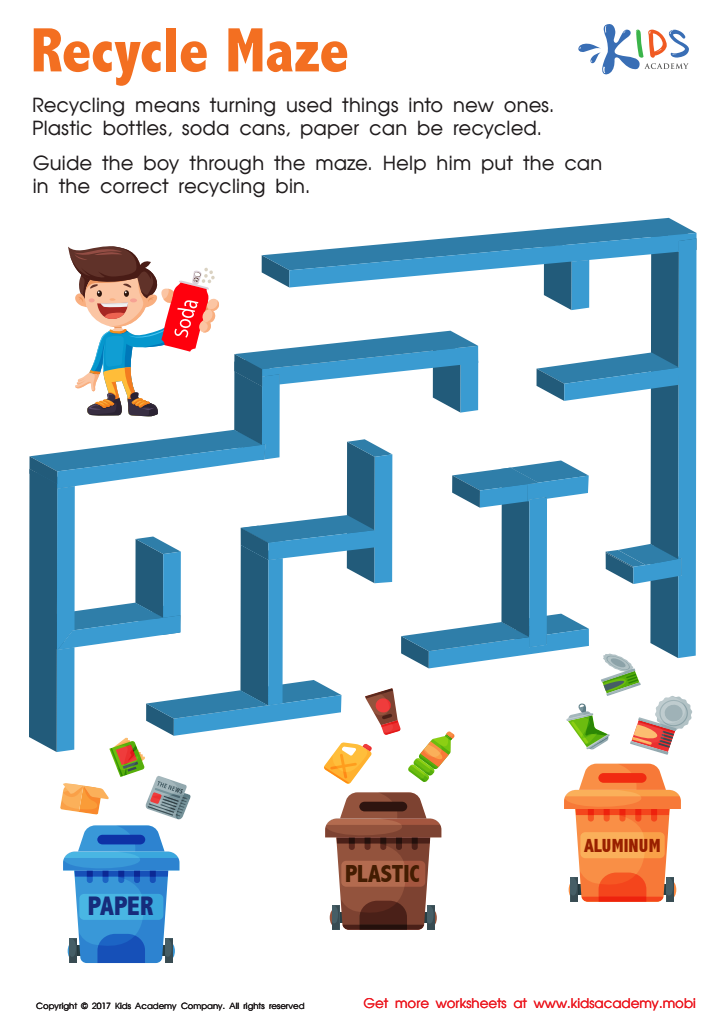

Recycle Maze Worksheet
Teach kids to recycle right with a fun recycling maze worksheet. It's an essential early environmental science lesson, showing kids how to protect our planet's health.
Recycle Maze Worksheet
Worksheet
 Assign to the classroom
Assign to the classroom



